Miso soup has been a long time favourite among people who enjoy Japanese food and cuisine. This aromatic and flavourful soup is capable of impressing almost any palate, and that’s why it’s still greatly loved.
Plus, it’s rich in protein, vitamins, and fibres and can provide many health benefits with regular consumption, such as lowering blood pressure, fending off breast cancer, and preventing constipation.
However, can vegans enjoy miso soup and its benefits, or is it unsuitable for a vegan lifestyle? To answer this question, we have to look at the constituents of miso soup and judge and see if any of its ingredients come from animals or involve animals in some way, shape, or form.
What Is Miso Soup Made Of?
Miso soup traditionally consists of two main ingredients, miso paste and dashi. It also includes a variety of other ingredients like tofu, rice, vegetables, noodles, mushrooms, among others.
Still, many people don’t really know the origin of these two ingredients and are clueless about what they’re made of. Therefore, we’ll break each ingredient down to its base components and tell you whether it’s vegan or not.
Is Miso Paste Vegan?
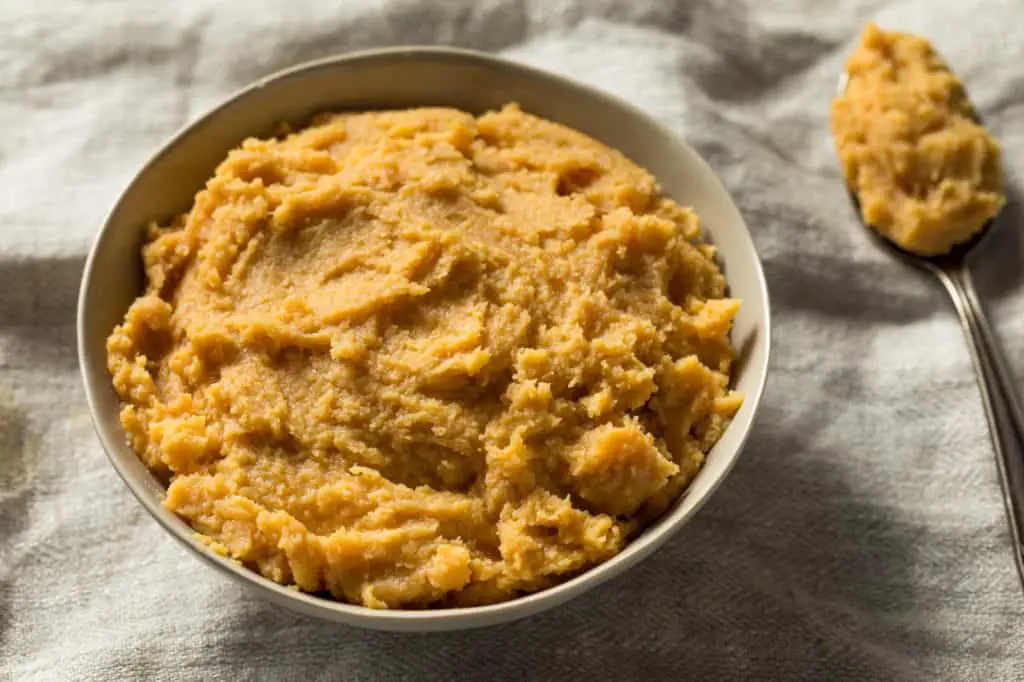
Here comes the good news. Miso paste is 100% vegan. That’s because it’s made from plants, and no animal products were involved in any step of its production.
Miso paste originated in China and was introduced to Japanese cuisine 1300 years ago by Buddhist priests. It’s usually made from soybeans that’ve been salted and then fermented by adding a fungus known as Koji. The fermentation process allows the soybeans to develop a distinctive flavour which gives miso soup its special and unique taste.
Miso paste is sometimes also made from rice, rye, or barley. Each region in Japan has its characteristic miso paste and comes in different textures and flavours, where some are sweet and some are salty.
It also comes in multiple colours such as white, red, black, and all the colours in between. The various types ensure that each person can find a miso paste that genuinely fits their taste and preferences.
Now, with miso paste out of the way, let’s take a look at the veganism of dashi.
Is Dashi Vegan?
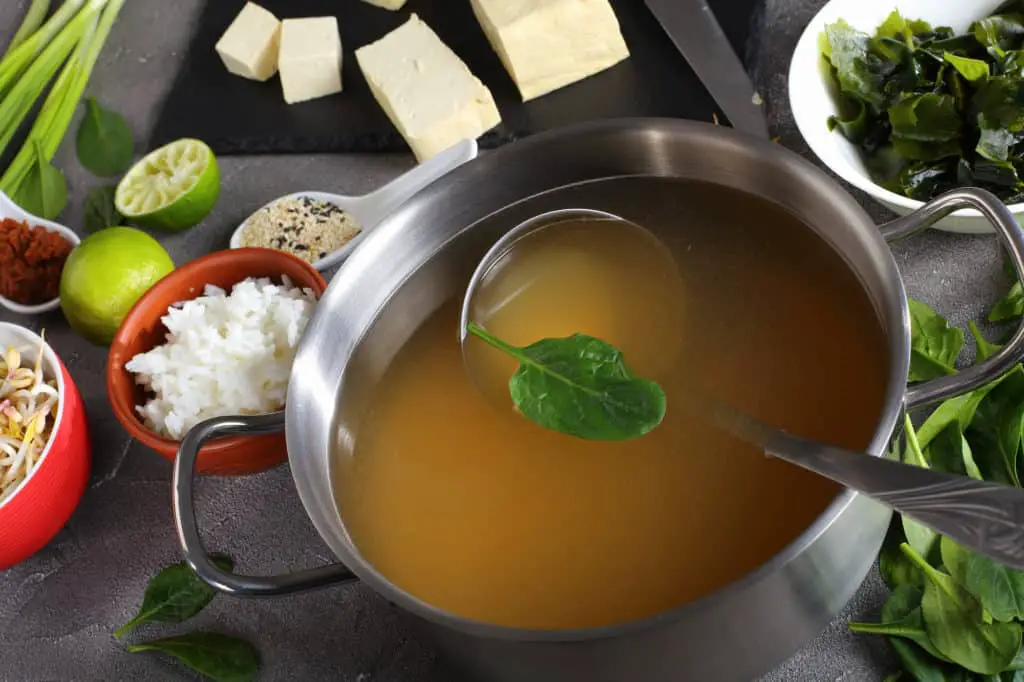
This one’s a bit of a complicated answer. Dashi is a type of Japanese stock and can be made from different ingredients. These ingredients are boiled and then strained, producing a delicious stock that’ll then be mixed in with miso paste to create miso soup.
The most commonly used dashi is called katsuobushi dashi, a stock made from dried skipjack tuna flakes known as bonito flakes.
Another well-known dashi is niboshi dashi that uses dried anchovies to achieve the rich flavour of the stock. Sometimes, sardines are used instead of anchovies or tuna.
There are even restaurants, mostly western ones, that use fish or chicken stocks as a replacement for traditional dashi. All these dashis make miso soups that can be topped off with shrimps, clams, eggs, chicken, and pork.
So far, it’s not looking too good for the vegans, huh? Luckily, though, some dashi options are suitable for vegans.
Vegan Varieties of Dashi
First off, we’ve got kombu dashi. This dashi is made from dried kelp, which is a type of seaweed. Consequently, when mixed with miso paste, it creates a vegan-friendly miso soup when topped off with other vegan ingredients like scallions, mushrooms, daikon, carrots, seaweed, soba noodles, and tofu.
And because some luck still remains for the vegans, there’s another vegan-appropriate dashi called shiitake dashi that’s made from shiitake mushrooms. So, again, when combined with the right ingredients, you get a wholly vegan miso soup.
Besides, if you can’t find kombu dashi, you can make your own vegan miso soup by adding the miso paste to some vegetable stock, and it’ll taste pretty similar to the real deal.
Accordingly, if you plan on ordering miso soup at a restaurant, you have to ask what type of dashi is used. If it’s the non-vegan types, ask if they can provide you with a vegan option, and if they can’t, well, now you know how to make your own.
Is Itsu Miso Soup Vegan?
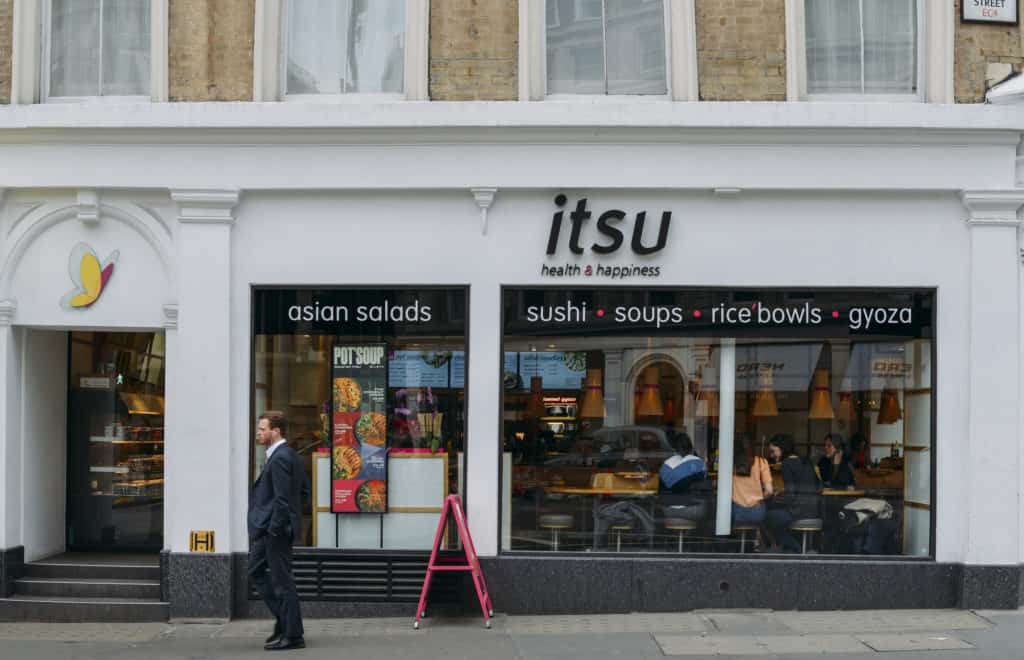
The popular Itsu franchise has made delicious Japanese meals for many years, and you can find them selling miso soup in their restaurants as well as their grocery stores.
Their signature miso soup and detox miso noodle soup are both vegan-friendly with no animal products whatsoever, so you’re in the clear when it comes to that.
Just a heads up, they may contain traces of crustaceans and molluscs due to cross-contamination with these creatures at one of Itsu’s suppliers. That doesn’t mean that the miso soups aren’t vegan, but it’d be wise to stay away from them if you’re highly allergic to these allergens.
Still, their instant miso soups like miso easy traditional and miso easy chilli are both 100% vegan and don’t contain any traces of the previously mentioned allergens. You can find the whole list of ingredients at the back of the packaging if you want to double-check.
Vegan Alternatives to Miso Soup
If you love miso soup but can’t find it in a restaurant near you, nor can you find the basic ingredients to whip it up at home yourself, some excellent alternatives to miso soup taste just as great.
Kombu stock on its own without the miso paste is still quite delicious. So is kenchinjiru, a traditional Japanese vegetable soup made from kombu stock and an assortment of tasty veggies.
And if you want to chew on some noodles while having delicious soup, there are various types of vegan ramen as well as vegan udon and soba noodles sold online and in-store nowadays, so you can easily get your hands on it.
Conclusion
Miso soup can be vegan when vegan options of dashi are combined with miso paste. Therefore, when ordering miso soup at your favourite restaurant, ask for shitake or kombu dashi in it. If they don’t have either of them, then know that the soup that’ll come out won’t be vegan at all.
Thankfully, it’s very easy to make miso soup once you gather the right ingredients. Some even prefer cooking it because they can add all the ingredients and toppings they want without limitations. So, get creative and have fun with your miso soup, and good luck with your culinary endeavours.






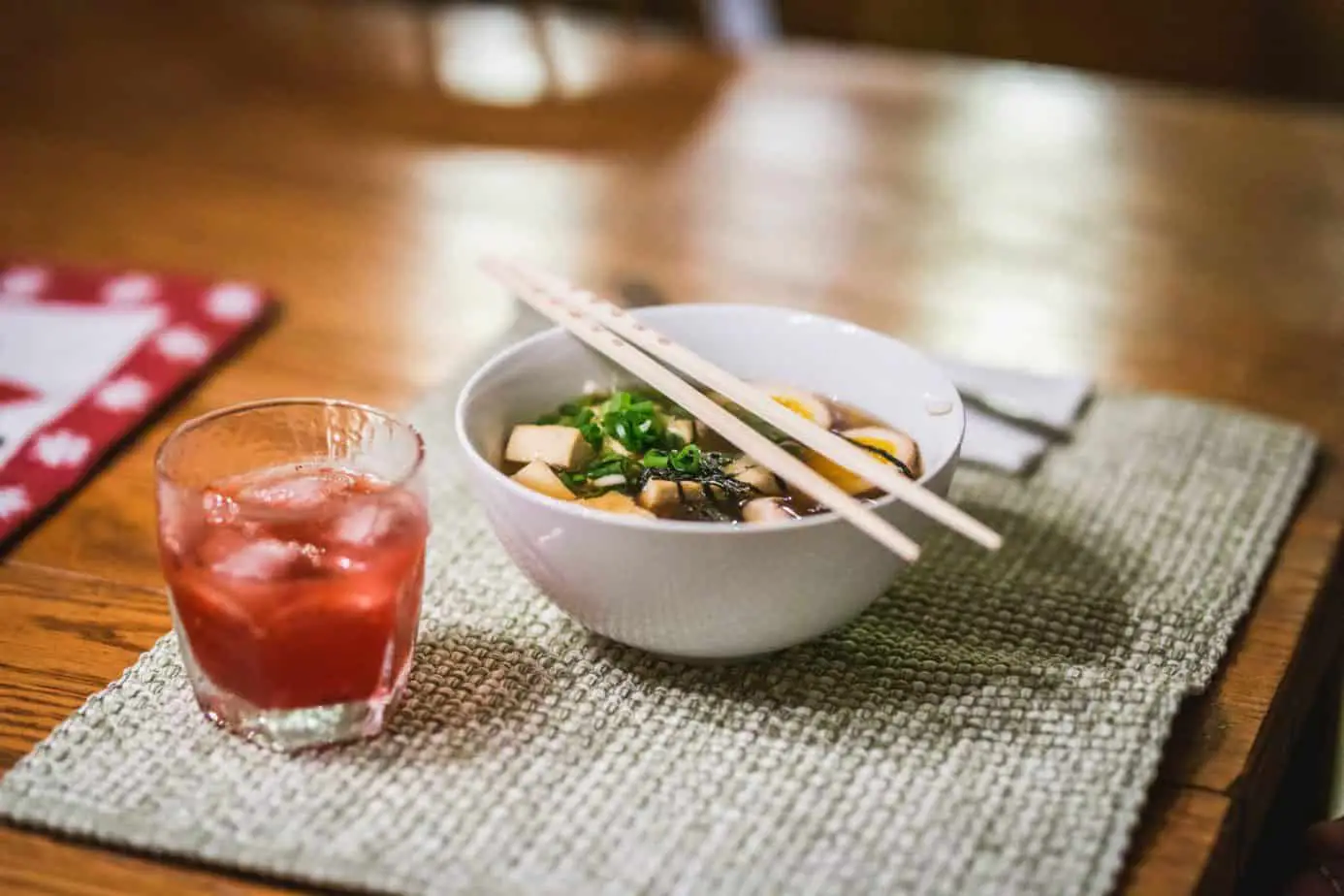

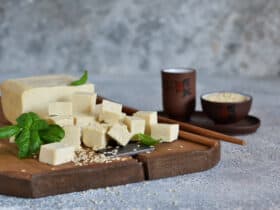
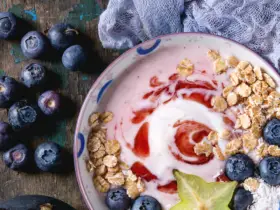
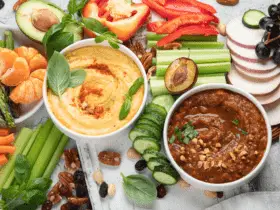
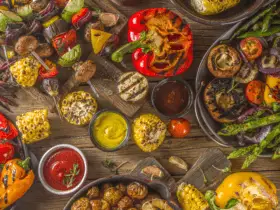
Leave a Reply